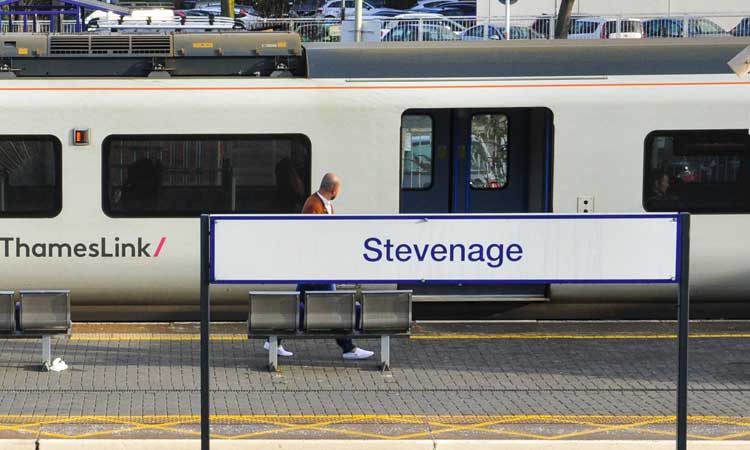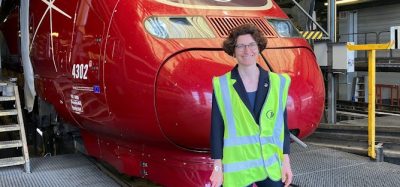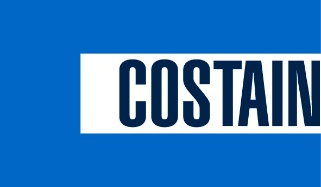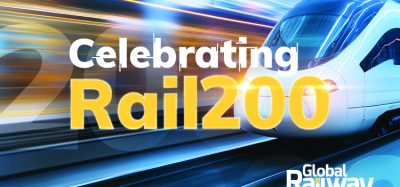£40 million improvements at Stevenage station to improve reliability of services
Posted: 5 August 2020 | Global Railway Review | No comments yet
The new platform and track at Stevenage station will improve the reliability of Great Northern, Thameslink and London North Eastern Railway services.


UK rail passengers can now take advantage of more frequent and reliable services, as well as better long-distance connections, thanks to a new £40 million platform and track at Stevenage station. Construction work on the project has been accelerated and delivered more than a year ahead of the revised schedule.
On a visit to the station where Platform 5 was officially opened to the first weekday services, the UK’s Rail Minister, Chris Heaton-Harris, hailed the completion of the project as an important milestone in the wider £1.2 billion upgrade of the East Coast Main Line between London and Edinburgh.
Work began in early 2019 to build a dedicated fifth platform where Govia Thameslink Railway (GTR)’s Great Northern trains from the Hertford North line – known as the Hertford Loop – could terminate and then go back towards London, creating space on the existing tracks for Thameslink trains and restoring the train service between Stevenage and the Hertford Loop, which has been served by buses since May 2019.
With the new platform and track separating the local Hertford Loop services from the longer distance mainline Great Northern, Thameslink and London North Eastern Railway (LNER) trains, passengers will benefit from better reliability.
The restored train service running between Stevenage’s new platform and the Hertford Loop will be an improved all-day, twice-hourly service between Stevenage and Hertford North, giving passengers from the loop better connections with the fast mainline services, which stop at Stevenage.
Network Rail worked with GTR to accelerate the revised project, which has been delivered over 12 months earlier than planned. The new platform includes a passenger lift and stairs to an extended station footbridge, along with two waiting rooms, three sets of seating, a help point and ticket machine.
Chris Heaton-Harris, the UK’s Rail Minister, said: “Our ambition is not just to deliver more punctual journeys, but to deliver major projects punctually as well. This new platform and track at Stevenage will mean more frequent and reliable services for passengers who use the line day in, day out.”
He continued: “Thanks to the hard work of Network Rail and GTR, who have worked tirelessly to accelerate the project, we have reached an important milestone in our ambitious £1.2 billion East Coast upgrade, which will bring improved connections, faster journeys, thousands of extra seats per day and more choice for passengers.”
Network Rail‘s Route Director, Paul Rutter, said: “This vital project to build a bay platform at Stevenage is part of a programme of investment that will allow additional services to run on the East Coast Main Line, bringing more choice, more seats and a more reliable railway for passengers. It will also bring more resilient local services on the Hertford Loop, as trains will soon be able to terminate at Stevenage and then go back towards London. ”
“We would like to thank passengers who have needed to use bus replacement services between Stevenage and Watton-at-Stone, station users and people who live near the railway for their continued patience whilst this essential part of the East Coast upgrade was completed,” he added.
Steve White, GTR’s Chief Operating Officer, said: “We have worked closely with Network Rail on this important project as part of the continuing transformation of our railway. This new, additional platform will help us run services more punctually on both the Great Northern metro and mainline services. The new platform also means that we can start running our Hertford services to and from Stevenage again, giving our customers from that area fast, convenient, step-free connections at the station to Cambridge, London, Gatwick and Brighton.”
The UK government’s £1.2 billion investment in the East Coast upgrade between 2014 and 2024 will improve passenger journeys, create capacity for up to 10,000 extra seats a day on long-distance services, speed up journeys and improve reliability for passengers.
Major work is also taking place at King’s Cross station and near Peterborough, where a new section of railway is being built at Werrington so that trains, particularly freight, can get to and from the line to Spalding, freeing up space on the East Coast Main Line for extra passenger services.
The East Coast Main Line is also set to become Britain’s first mainline digital rail link, with £350 million of new investment to install state-of-the-art electronic signalling designed to cut journey times and slash delays.
Conventional signalling will be replaced with a digital system that allows trains to talk to the track, smoothing the flow of trains, making journeys safer and reduce signal failures that every year result in thousands of hours of delays.
Related topics
Infrastructure Developments, Operational Performance, Passenger Experience/Satisfaction, Station Developments, Track Construction
Related organisations
Govia Thameslink Railway (GTR), Great Northern, London North Eastern Railway (LNER), Network Rail, Thameslink








